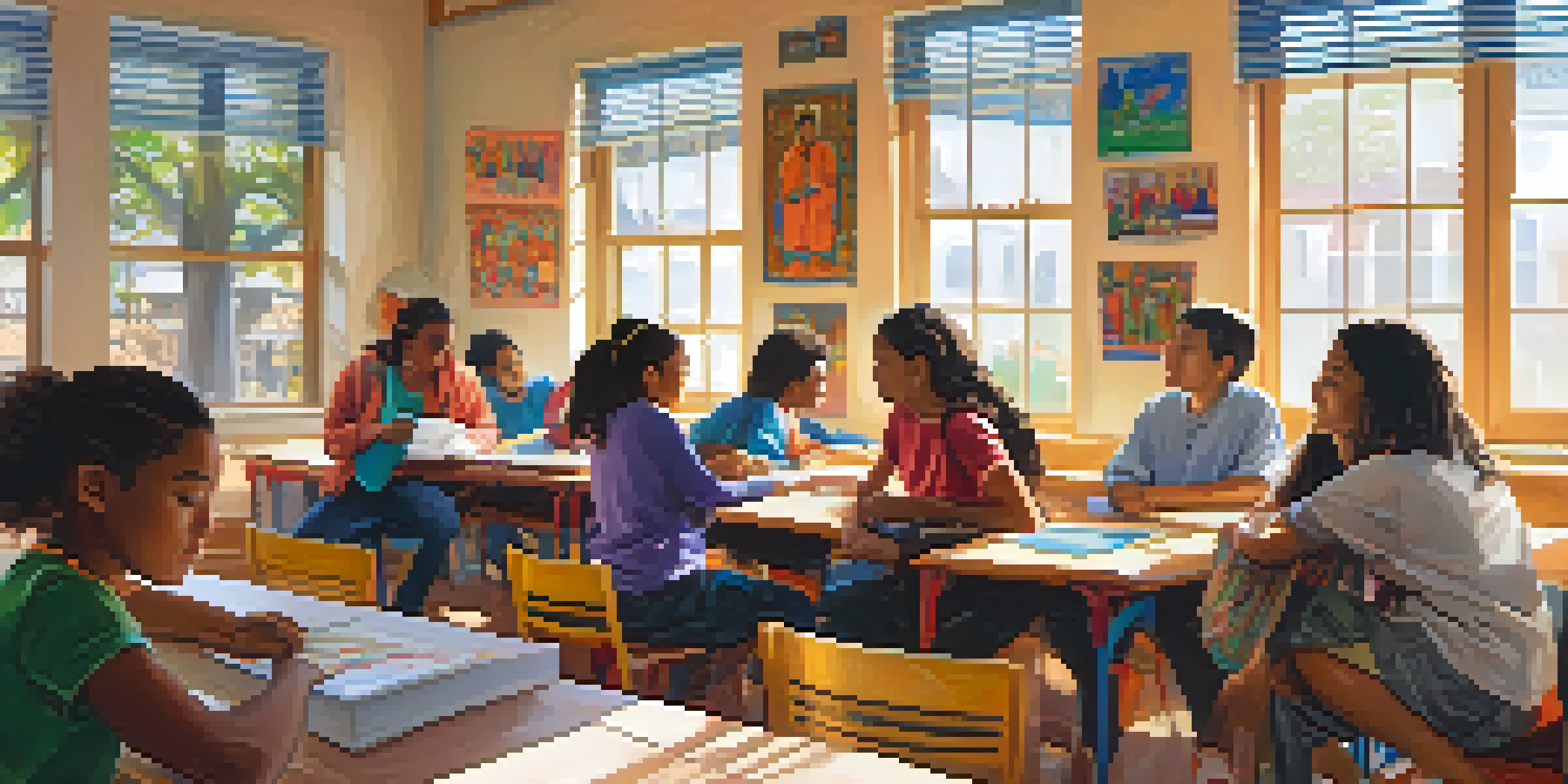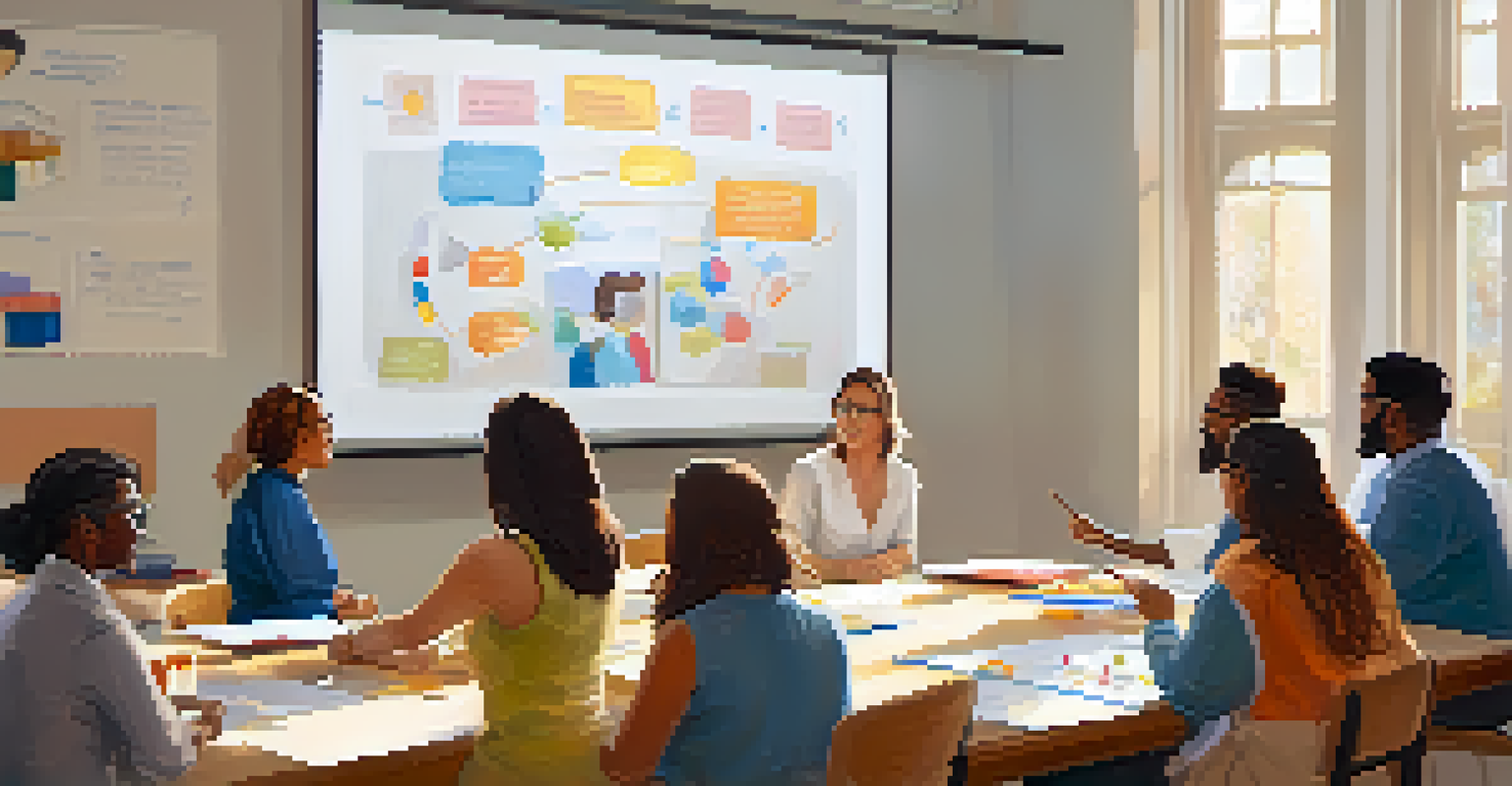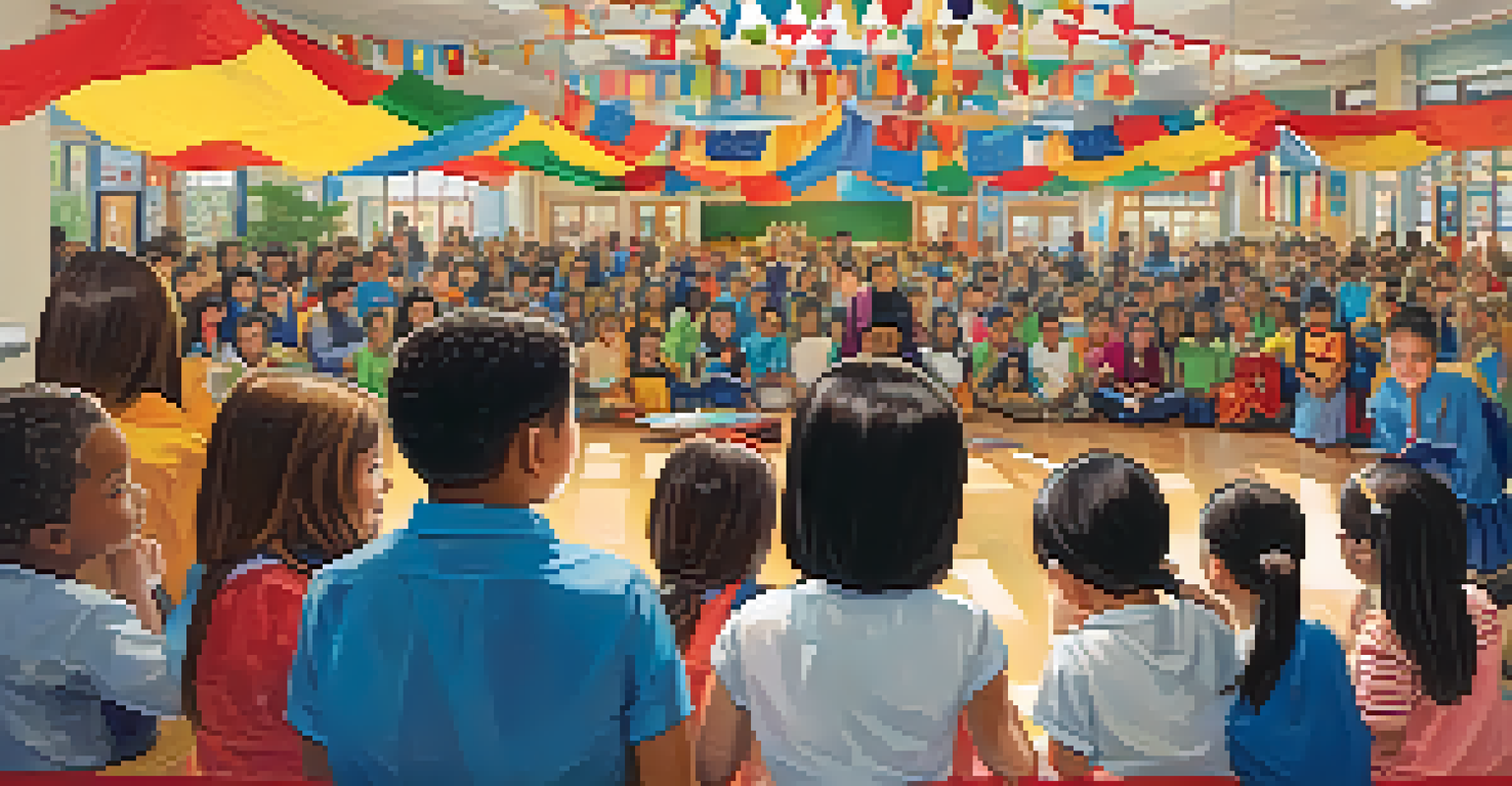Collaborating with Cultural Experts in Curriculum Development

Understanding the Importance of Cultural Expertise
Cultural expertise plays a crucial role in curriculum development, ensuring that educational content is relevant and inclusive. By incorporating diverse perspectives, we foster a learning environment that respects and values different cultures. This not only enhances student engagement but also prepares them for a globally interconnected world.
Education is the most powerful weapon which you can use to change the world.
When educators collaborate with cultural experts, they gain insights into the nuances of various traditions and beliefs. This helps in creating materials that resonate with students from different backgrounds. Imagine a classroom where every student sees their culture reflected in the curriculum; it cultivates pride and a sense of belonging.
Ultimately, understanding the importance of cultural expertise means recognizing that education is not one-size-fits-all. Each student's unique background enriches the learning experience, and cultural experts provide the necessary guidance to ensure that all voices are represented.
Identifying and Engaging Cultural Experts
Finding the right cultural experts to collaborate with can be an exciting journey. Start by reaching out to local communities, universities, and cultural organizations that specialize in the areas relevant to your curriculum goals. Building relationships with these experts creates a network of valuable resources for ongoing collaboration.

Once you identify potential collaborators, it's essential to engage them meaningfully. Schedule meetings to discuss your objectives and how their expertise can enhance the curriculum. A genuine interest in their insights helps foster a partnership built on respect and mutual understanding.
Cultural Expertise Enhances Curriculum
Incorporating cultural expertise into curriculum development ensures that educational content is relevant, inclusive, and reflective of diverse student backgrounds.
Keep in mind that cultural experts are not just contributors; they can also provide training and workshops for teachers. This can deepen the educators' understanding of the cultures they are addressing, leading to more effective teaching practices and a richer educational experience for students.
Creating Inclusive Curriculum Materials
Inclusive curriculum materials reflect the diverse backgrounds of all students. By working with cultural experts, educators can develop resources that accurately represent different cultures and histories. This approach helps prevent stereotypes and promotes a more nuanced understanding of complex social issues.
Diversity is the one true thing we all have in common. Celebrate it every day.
For instance, when developing literature materials, incorporating stories from various cultures can provide students with a broader perspective. This not only enhances their literacy skills but also fosters empathy and critical thinking. It's about creating connections between students and the world around them.
Moreover, inclusive materials can involve multiple formats—text, visuals, and interactive elements. Collaborating with cultural experts ensures these materials are not only accurate but also engaging, making learning a more enriching experience.
Integrating Cultural Perspectives in Classroom Discussions
Classroom discussions are prime opportunities to integrate cultural perspectives. When cultural experts contribute to the curriculum, they can guide educators on how to facilitate conversations that honor diverse viewpoints. This fosters an environment where students feel comfortable sharing their own experiences.
Encouraging open dialogue about culture helps students develop critical thinking skills and cultural competence. For example, discussing current events through the lens of different cultural perspectives can lead to richer, more meaningful conversations. This not only broadens their understanding of the world but also encourages respect and empathy.
Engagement with Cultural Experts
Building meaningful relationships with cultural experts allows educators to create materials that resonate with students and promote a sense of belonging.
Additionally, using culturally relevant prompts can stimulate thoughtful discussions. By weaving these perspectives into everyday classroom interactions, educators can create a dynamic learning atmosphere that celebrates diversity.
Assessing the Impact of Cultural Collaboration
Assessing the impact of collaboration with cultural experts is essential for continuous improvement. Implementing feedback mechanisms, like surveys or focus groups, allows educators to gauge how well the curriculum resonates with students. Understanding student experiences helps refine the educational approach.
Moreover, tracking academic performance and engagement levels can provide quantitative data on the effectiveness of culturally informed curriculum. This information is invaluable for making necessary adjustments and demonstrating the value of cultural expertise in education.
Regular assessment also fosters accountability among educators and cultural experts. It encourages ongoing dialogue about what works and what needs enhancement, ensuring that the curriculum remains relevant and impactful.
Fostering a Collaborative Learning Environment
A collaborative learning environment is vital for the success of culturally enriched curricula. This means not only working with cultural experts but also encouraging collaboration among students. Group projects that require students to explore different cultural perspectives can promote teamwork and respect.
In such an environment, students learn to appreciate each other's backgrounds and experiences. They become more open-minded and adept at working with diverse groups, skills that are invaluable in today’s interconnected world. Imagine students coming together to celebrate each other's cultures through presentations or projects; it transforms the classroom dynamics.
Continuous Assessment is Key
Regularly assessing the impact of cultural collaboration helps educators refine their approach and maintain a relevant and effective curriculum.
Creating a culture of collaboration also involves ongoing professional development for educators. By sharing best practices and experiences, teachers can learn from one another, continuously improving their approach to inclusivity and cultural representation.
Challenges and Solutions in Collaboration
While collaborating with cultural experts is beneficial, it does come with its challenges. Time constraints and differing perspectives can sometimes hinder progress. However, addressing these challenges head-on with open communication can lead to innovative solutions.
For instance, setting clear expectations and timelines from the beginning helps ensure that everyone is on the same page. Regular check-ins can also facilitate adjustments as needed, allowing the collaboration to evolve naturally. Remember, flexibility is key in any partnership.

Additionally, it's essential to create an atmosphere of trust where all voices are valued. Encouraging cultural experts to share their insights openly can lead to richer discussions and more effective curriculum development.
Celebrating Success and Continuous Growth
Celebrating successes in curriculum development is crucial for motivation and morale. Acknowledging the contributions of cultural experts and the positive impact on students reinforces the value of collaboration. Consider hosting events or workshops to showcase the enriched curriculum and its outcomes.
Furthermore, continuous growth should be a priority. Education is ever-evolving, and staying informed about new cultural developments can enhance the curriculum even further. Encourage cultural experts to provide ongoing training and updates to keep the curriculum fresh and relevant.
Ultimately, celebrating success while striving for continuous growth creates a vibrant educational environment. It demonstrates a commitment to inclusivity and cultural understanding, preparing students to thrive in a diverse world.